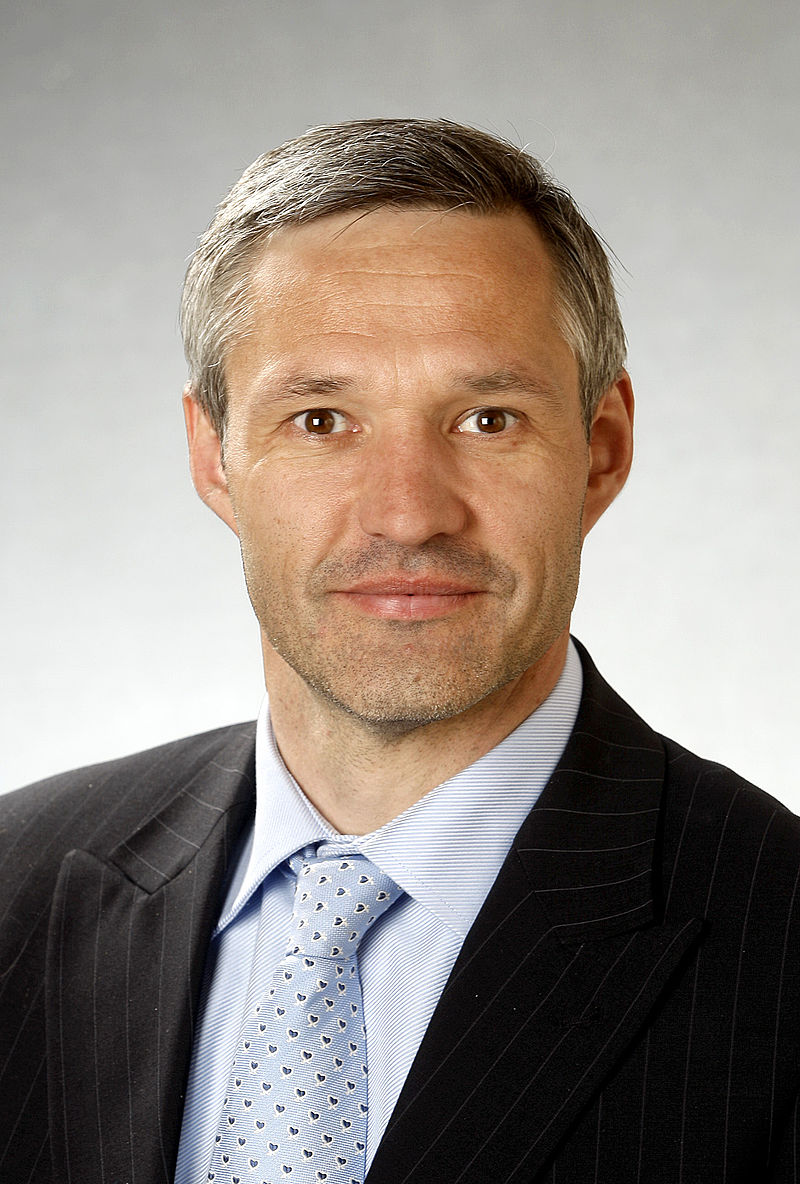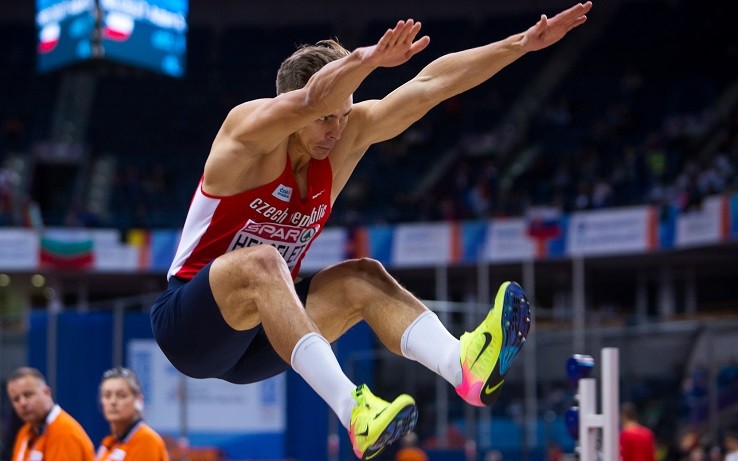Erki Nool: independent Estonia’s first Olympic champion in track & field

Erki Nool, the fourth child in a large family, grew up in Võru, a small village in the former Estonian SSR. As the younger brother Erki learned how to compete against his older siblings at an early age. He learned one of the most important features of a great athlete very young. You can’t be afraid of competing.
At the age of 13 he moved to a sports institute in Tallinn. Measuring only 150cm in height and weighing only 34kg he was one of the smallest children in the training group. At this time, his two greatest events were high jump and 800m since they were the only events he could practice properly due to poor training facilities back in Võru.
As a young athlete he had three big idols: Carl Lewis, Sergey Bubka and two-time Olympic decathlon champion Daley Thompson, who later would become his coach during the Olympic victory in Sydney.
The decathlon has always been a respected event in Estonia, since it’s one of only four nations to have earned all three Olympic medals from the event. When Erki was growing up Estonia also had Valter Külvet who became the first Estonian over 8500 points and represented the USSR in the Seoul Olympics in 1988.
Early career
After graduating from school Erki became a part of a small but good training group containing super talent Andrei Nazarov, five years his senior, who later was to become the coach of decathletes Pascal Behrenbruch, Andres Raja and Janek Õiglane among others. In these years hard training was key, since the best time to train loads is at a young age when you recover fast and don’t have the same capacity as an adult. The other important thing was to learn the basic technique of events.
When asked about training loads Erki is keen to point out that speed is everything. It was always the main focus in his own training with the other events built around it. He counts that during two days of decathlon you will run over 2800m at maximum speed (all warm-ups included). Another focus was to improve the weaker events such as shot put, hurdles and discus without detracting from any of the better events. In his time, decathletes didn’t run 1500m fast, unless they had to, and the strong competition in javelin made many decathletes throw over 70m. Back then the world’s best decathletes used to be consistent over 46 meters in the discus and with Erki already feeling natural throwing the javelin and pole vaulting he spent much time on training with the discus.
Sydney Olympics
Coming to Sydney with two decathlons over 8700 points Erki knew he was in the shape of his life. The weeks prior to the games showed that, if he had no setbacks he would be able to score over 8800 points. Going into the second day Erki was over 100 points ahead of his personal best series. The weather the second morning was challenging. Below 10 degrees and heavy rain made the warm-up difficult, but he still managed to run the hurdles in a decent time. Then came the discus and arguably one of the most dramatic episodes in the history of decathlon. After fouling the first two throws all depended on the final throw, which was a good one far beyond 40m. First a white flag was raised, but after fellow competitor Tomas Dvorak shouted it was a foul, the official switched to the red flag and after that in confusion again to white. The throw was measured but the Czechs, Brits and the Americans made a protest. The Germans told Erki that they would have also made a protest if they had had someone fighting for the medals.
After all this Erki wasn’t able to sleep before the pole vault, which was one of his routines because he was always entering later than anyone else. He was tired and the pole vault didn’t go well clearing only 5 meters – way below his normal standard meaning a loss of 100 points. He still beat his main competitors by a margin lifting him from fourth to second before the final two events. After a strong javelin throw he was close behind the leader Chris Huffins before the final event. A tactically smart 1500m race then made Erki the first Olympic champion of Estonia in track and field.

Erki’s development during the years. Ultimate decathlon is the hypothetical decathlon where all season’s bests are counted together.
Sponsors
After the Olympics Erki became a national hero in Estonia. When asked about the financial support during his career Erki points out that the economy in the young country was poor and that the sponsors were not many. He says that the need of money is often taken out of context by the press and that the most important thing is to be passionate about what you do. He made a good living at home with cars and a house where he still lives today with his family. His biggest sponsors such as Coca-cola on the other hand he got through friends from other countries. He also started his career in real estate while still an active athlete.
Favorite events
Erki always found the pole vault natural to him and liked the mental challenge. He always used to count in his head how much he needed to jump to make up for the two previous events. The 400m was his second favorite since it’s also a mentally tough event. His key was not to think how fast he could run, but how easily he could run how fast.
Secrets of success
When Erki thinks back on his career he sees two important things that made him such a great decathlete. One was that, even though he also suffered from injuries and went through surgeries, he never quit a season half-way. The other thing was the many hours he put into training. During training camps he could train 5 days a week with 6-7 hours per day during weeks and 2-3 hours on Saturdays.
Life after decathlon
Even though Erki went to the University of Tallinn he dropped out because of his career. After Erki was done competing he had already built up a stable life to fall back on and continued to expand his real estate business. He also started coaching and coached Kristjan Rahnu over 8500 points and Argo Golberg to national records on 100m among others. Today he still is a common sight during international competitions being a former member of the board of European Athletic Association. When he looks at today’s world record holder Kevin Mayer he sees an athlete that masters the basics of all the events and with no weak event was able to score a mark that only a few people (including Erki) would have thought even possible 20 years ago.


Comments